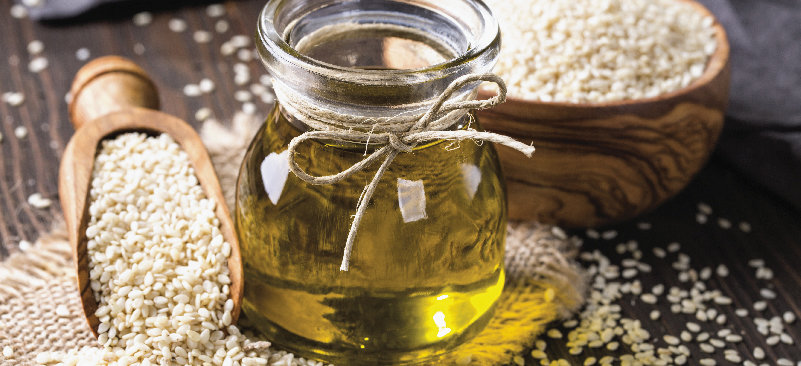This Dr. Axe content is medically reviewed or fact checked to ensure factually accurate information.
With strict editorial sourcing guidelines, we only link to academic research institutions, reputable media sites and, when research is available, medically peer-reviewed studies. Note that the numbers in parentheses (1, 2, etc.) are clickable links to these studies.
The information in our articles is NOT intended to replace a one-on-one relationship with a qualified health care professional and is not intended as medical advice.
This article is based on scientific evidence, written by experts and fact checked by our trained editorial staff. Note that the numbers in parentheses (1, 2, etc.) are clickable links to medically peer-reviewed studies.
Our team includes licensed nutritionists and dietitians, certified health education specialists, as well as certified strength and conditioning specialists, personal trainers and corrective exercise specialists. Our team aims to be not only thorough with its research, but also objective and unbiased.
The information in our articles is NOT intended to replace a one-on-one relationship with a qualified health care professional and is not intended as medical advice.
Sesame Oil: Popular In Asian Cuisine and Full of Health Benefits
September 29, 2019

Sesame oil is a powerful ingredient that dates back thousands of years and is known for its ability to boost the flavor and health benefits of just about any dish.
In addition to offering a wealth of antioxidants and heart-healthy fats, this nutritious ingredient has also been shown to support skin health, enhance heart health, reduce inflammation and relieve chronic pain.
So is sesame oil good for you? And how can you include it in your diet? Keep reading for everything you need to know about this common ingredient.
What Is Sesame Oil?
Sesame oil is a type of vegetable oil that is derived from sesame seeds. In addition to being used as a cooking oil, it’s also used to bump up the flavor of certain dishes, thanks to its rich, nutty taste.
There are several different processing methods used to produce the oil, but the seeds are typically crushed and then pressed.
The sesame plant has been cultivated for thousands of years, and was originally favored over other crops because of its ability to withstand dry weather and drought.
The seeds were one of the first plants used to produce oil, which was also considered one of the earliest condiments ever used.
Today, the oil is used in many cuisines around the world, and it’s not uncommon to spot sesame oil in Tamil Nadu, Chinese, Japanese and Korean dishes.
It has also become a popular ingredient in western countries as well, where it is often used as a flavor enhancer and cooking oil.
Benefits
1. Supports Heart Health
Promising new research shows that sesame oil could help enhance heart health and protect against disease.
For instance, one study in 48 people found that consuming four tablespoons of sesame oil daily for one month led to significant reductions in total and bad LDL cholesterol along with decreases in triglyceride levels, body weight and belly fat, all of which are risk factors for heart disease.
The oil is made up mostly of unsaturated fats, which are a type of heart-healthy fatty acid that can improve heart health.
In fact, one large review of 15 studies showed that swapping out saturated fats for polyunsaturated fatty acids could help slash the risk of developing heart problems by 17 percent.
2. Stabilizes Blood Sugar
Several studies have found that white sesame oil, in particular, may help support better blood sugar control.
One study published in Journal of the American College of Nutrition showed that taking white sesame oil for 90 days was effective at reducing fasting blood sugar and enhancing long-term blood sugar control in people with type 2 diabetes.
An animal model out of Pakistan had similar findings, reporting that the oil was able to reduce blood sugar and insulin levels in rats while also improving markers used to measure heart, liver and kidney health.
3. Good Source of Antioxidants
The sesame oil nutrition profile is a great source of several key antioxidants, including sesamol and sesaminol.
Antioxidants are powerful compounds that help neutralize disease-causing free radicals and protect against chronic conditions such as heart disease and cancer.
One animal model published in Journal of Cardiovascular Disease Research showed that administering the oil to rats for 30 days helped increase antioxidant activity, which could help prevent oxidative damage to cells caused by free radicals.
4. Relieves Inflammation
Sesame oil has long been used in traditional medicine to help soothe inflammation and treat inflammatory conditions like arthritis.
Recent research on the anti-inflammatory properties of sesame has turned up promising results. In one study, consuming 40 grams of sesame seed daily was effective at reducing several markers of inflammation in people with osteoarthritis.
Several in vitro studies and animal models have turned up similar findings, suggesting that sesame seed oil could reduce inflammation, which plays a key role in health and disease.
5. Promotes Skin and Hair Health
Sesame oil is often found in skin serums and natural beauty products, and for good reason. In recent years, several studies have emerged showing that sesame oil could improve the health of the hair and skin to keep you looking and feeling your best.
For example, a 2015 study in the Global Journal of Health Science showed that taking a supplement containing sesame and vitamin E was able to improve hair luster and strength in just eight weeks.
Another review confirmed that the oil could help block ultraviolet radiation to protect the skin, and may be even more effective than other ingredients like coconut oil, peanut oil and olive oil.
Additionally, animal models show that sesame oil may also speed up wound healing and increase collagen production, which is likely due to its concentrated content of antioxidants.
6. Reduces Chronic Pain
Sesame oil is often applied topically to reduce pain, which may be due to its anti-inflammatory, analgesic and antioxidant properties.
One study published in Anesthesiology and Pain Medicine found that applying the oil topically was able to reduce pain severity and decrease the need for pain medications in people with trauma to the lower or upper extremities.
Another study out of Iran had similar findings, noting that performing a sesame oil massage could be beneficial for providing pain relief, with a lower cost and less risk of adverse side effects than other treatments.
Nutrition
Like other types of vegetable oils, sesame oil is high in calories and fat, with about 119 calories and 13.5 grams of fat per tablespoon. Although it does contain a small amount of saturated fat, the majority of the fats found in the oil are nearly equal parts mono- and polyunsaturated fatty acids.
It does contain a small amount of omega-3 fatty acids, but is mostly made up of omega-6 fatty acids, with over 5,550 milligrams in just one tablespoon. It also contains a small amount of other nutrients, including vitamin E and vitamin K.
How to Use It
There are several different types of sesame oil available, each of which varies slightly in taste, potential uses and appearance.
Refined sesame oil is the most processed form and has a very mild, neutral taste that works well in cooking and frying.
Unrefined sesame oil, on the other hand, is less processed and has a lighter color and more nutty taste. Because the unrefined sesame oil smoke point is a bit lower, it should be used for cooking methods like sautéing and stir-frying rather than deep-frying or roasting.
Toasted sesame oil is also available, which is made from seeds that have been toasted before extracting the oil. This gives it a strong and intense nutty flavor that can add depth to any dish. Because this variety has the lowest smoke point, it should be used as a flavor enhancer for dressings, marinades and sauces, and may not a suitable substitute for sesame oil or other oils in recipes that require cooking.
To take advantage of the potential sesame oil benefits for hair and skin health, try applying it topically and massaging into the skin or scalp. You can also combine it with other healthy oils like coconut oil to make a homemade hair or skin mask.
Wondering how much sesame oil to take daily? Although there are no specific guidelines for how much you should use, it’s best to pair it with plenty of other healthy fats in your diet and enjoy in moderation as part of a balanced diet.
Recipes
Need some ideas for how to include sesame oil in your diet? Try swapping out other vegetable oils like canola, olive or sunflower oil and using an untoasted sesame oil substitute instead in your favorite recipes.
Alternatively, you can drizzle a bit of toasted sesame seed oil over cooked dishes, stir-fries, sauces and dips to add a dose of delicious nutty flavor.
Here are a few recipes that include sesame oil to help get you started:
- Moo Shu Chicken Lettuce Wraps
- Tuscan Kale with Sesame Oil
- Soba Noodles with Turmeric Thai Sauce
- Sesame Garlic Broccoli
- Paleo Turkey Wonton Soup
Risks and Side Effects
Despite the many potential sesame oil benefits, there are a few sesame oil disadvantages to consider as well.
For starters, this type of vegetable oil is high in omega-6 fatty acids. While we do need this type of fat in moderation, most of us get way too much omega-6 fatty acids and not enough omega-3s in our diet.
An imbalance in omega-3, 6 and 9 fatty acid ratio can contribute to inflammation and the development of chronic disease, which is why it’s essential to moderate your consumption of foods high in omega-6 fatty acids.
Additionally, one of the most common sesame oil side effects when applied to the skin is irritation and itching, which be a sign of an allergic reaction. Be sure to do a spot test before applying topically to prevent any adverse effects.
Some people also wonder: Does sesame oil go bad? Like all fats, it can go rancid over time. Therefore, if you notice any changes in color or smell, be sure to discard immediately.
Final Thoughts
- Sesame oil is a common cooking oil and flavor enhancer that has been used around the world for centuries.
- The sesame oil nutrition profile is a great source of unsaturated fats and antioxidants. It also contains a small amount of micronutrients like vitamin E and vitamin K.
- Is sesame oil healthy? Potential sesame oil benefits include improved heart health, better blood sugar control, decreased inflammation, enhanced hair and skin health and reduced pain.
- Refined, unrefined and toasted varieties are all available, each of which offers a unique taste and appearance.
- Refined and unrefined oils can be used for cooking while toasted sesame makes a great addition to sauces, vinaigrettes and marinades to help enhance the flavor.











